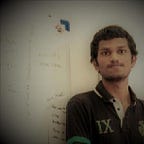Five books for 2022
Few classics for inspiration on reading, and thinking
The following books offer analysis on the hard skill of reading, connecting with our body and mind with lesser superficiality, thinking more deeply and understand the workings of the everyday life so that we could have a more fulfilling thought stream.
(1) Study is Hard work by William Howard Armstrong
Reteaches the art of reading textbooks, reports, and documents for a fulfilling grasp of the content. Whenever we talk about the success of someone, the first 12 years of school education does not come into the spotlight. In this time, around 10,000 hours of reading happens from which we nourished our reading ability — thanks to our teachers and learning conditions.
This book stresses the importance of studying diligently, like a school student throughout life. Also, mentions that the study is hard work involving hours and hours of involved reading, understanding and practice.
(2) The Body Keeps the Score by Bessel A. van der Kolk, M.D.
This book is written for doctors, but simple in language to be read by everyone. It organically tackles mental health which is a more sustainable alternative than medical practices.
This book explores the relationship between emotional struggle and the body. For example, when we are tensed the muscles tend to pump blood to the heart and the heart tends to pump blood to the muscles which impair heart function.
(3) The Art of Thinking Clearly by Rolf Dobelli
Our thinking is supplemented with how some thinking fallacies might be a hindrance to thinking clearly. You might already be knowing some of them, this book gives names to those thoughts so that you could easily communicate them. This book explores various biases, such as
- sunk costs — I have majored in Civil Engineering but am interested in Computer Science. I am hesitating that all the Civil Engineering learning would go to waste which is the sunk cost. So, we need to think about future gains to offset this.
- Endowment effect — I bought a used car for $30,000. I took it out for a spin and stopped at a gas station. The owner came out to admire the car — and proceeded to offer me $60,000 in cash on the spot. I politely declined. We consider things to be more valuable the moment we own them. Expect this and take the price.
- Impossibility — With a degree from this school, the chance of you landing a spot on the board of fortune 500 is less than 0.1%. No matter how smart or ambitious you are.
- Auctions. Don’t go. If they are inevitable, set a maximum price and deduct 20% from this to offset the winner’s curse. Write this on a piece of paper and don’t go a cent over it.
(4) Art Spirit by Robert Henri
Notes on art, and how to think like an artist. Assuming that any work is an art form. One example, If you would want to paint the portrait of a person keep the drawing board in one room and of the person whom we need portrait in the other room. So that the artist looks at observes the person for a while takes the impressions to the drawing table.
(5) Algorithms to Live By, The Computer Science of Human Decisions — Brian Christian, Tom Griffiths
Explores the optimal solutions for arranging files on a desk, searching for a house, Choosing a relationship, why fading memories in elderly people is a symptom of better memory not worse.
Naturally, our seemingly unorganized desk, a pile of papers are organized if we think in terms of the right paradigm. Once we understand these applications we would see the world in a more organized, optimal lot.
